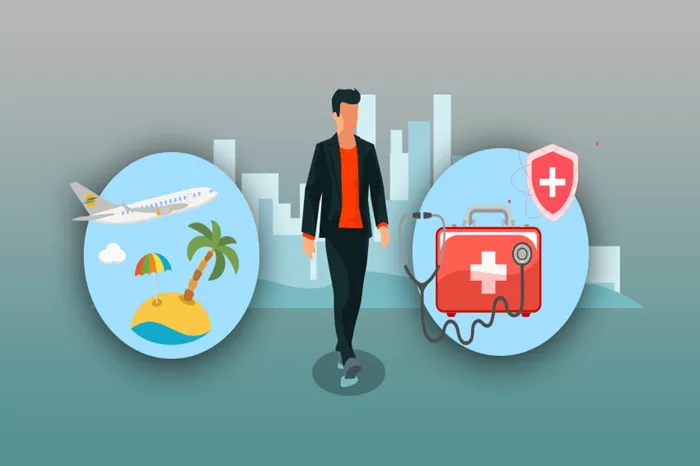When transporting an RV, either for delivery, relocation, or commercial purposes, it is crucial to consider the insurance implications involved. One often-overlooked component of RV transport insurance is unladen insurance, which specifically covers vehicles while they are not carrying a load or trailer. Whether you’re a private RV owner moving across states or a transport company offering delivery services, understanding unladen insurance can save you from potential financial setbacks.
In this comprehensive guide, we will break down what unladen insurance is, how it relates to RV transportation, and what factors influence its cost. We will also look into how unladen insurance fits within broader RV insurance coverage and provide key insights on budgeting for these expenses.
What Is Unladen Insurance?
Unladen insurance is a type of liability insurance that provides coverage for vehicles when they are operating without a load. In the context of RV transport, this typically means the towing vehicle is covered while it is not hauling the RV or after the RV has been delivered. This type of insurance becomes especially important for businesses or individuals who frequently transport RVs and may need to operate the towing vehicle in an unloaded state.
Standard auto insurance policies often do not cover these specific instances, leaving a gap in protection. Unladen insurance fills that gap, ensuring that the vehicle is insured during its entire journey, not just while it is towing.
Why Is Unladen Insurance Important for RV Transport?
Transporting an RV is not as straightforward as driving a car. It involves logistical planning, regulatory compliance, and insurance considerations. Here’s why unladen insurance should not be overlooked:
- Legal Requirements: In many jurisdictions, vehicles used for commercial transport are required to carry unladen insurance to be compliant with transportation laws.
- Financial Protection: Accidents can happen at any stage of the journey. Without unladen insurance, damages incurred while the vehicle is not loaded might not be covered.
- Business Continuity: For RV transport companies, unladen insurance ensures that business operations can continue smoothly, even when vehicles are operating without loads.
Factors That Affect the Cost of Unladen Insurance
Several variables can influence how much you’ll pay for unladen insurance in the context of RV transport:
Type and Weight of the Towing Vehicle
Larger, heavier towing vehicles generally cost more to insure, especially when used commercially. The insurance company assesses the risk associated with the vehicle’s operational use, which includes its potential for damage or injury while unladen.
Frequency of Transport
Regular or high-frequency RV transport operations will typically lead to higher premiums. This is because the more often a vehicle is on the road, the higher the chances of an incident occurring.
Driving History
As with most insurance policies, your driving record plays a significant role. A clean record can reduce your unladen insurance premiums, while a history of violations can raise them.
Coverage Limits
The higher the coverage limit you choose, the more expensive your policy will be. However, opting for minimal coverage can leave you exposed to high out-of-pocket costs in the event of an accident.
How Unladen Insurance Integrates with RV Insurance
If you already have RV insurance, it’s important to understand how unladen coverage complements it. Most RV insurance cost structures are built around protection while the RV is being used or stored, but they may not extend to the towing vehicle while it is unladen. This can create a coverage gap that could be financially damaging in the event of an accident occurring between RV deliveries or while returning from a drop-off.
Integrating unladen insurance into your broader insurance strategy ensures continuous protection, safeguarding your investment and operations.
Commercial vs. Personal RV Transport Scenarios
The need for unladen insurance varies depending on whether the RV is being transported for commercial or personal reasons:
Commercial RV Transport
For businesses specializing in RV delivery or rental, unladen insurance is often a regulatory necessity. Not only does it provide coverage for the towing vehicle during its unladen phases, but it also demonstrates professionalism and operational compliance.
Personal RV Transport
Individuals who transport their own RVs occasionally may not be legally required to carry unladen insurance, but it is still a wise investment. Personal auto insurance may not fully cover incidents occurring during transport unless explicitly stated in the policy.
How to Budget for Unladen RV Transport Insurance
One of the most critical questions surrounding unladen insurance is its cost. While rates vary, here are some tips for keeping your premiums manageable:
- Compare Providers: Use online tools to RV insurance compare and find policies that include unladen coverage.
- Bundle Policies: If you already have RV or auto insurance, see if your provider offers bundled discounts that include unladen insurance.
- Increase Deductibles: Choosing a higher deductible can lower your premium, though it means more out-of-pocket expenses in case of a claim.
- Maintain a Clean Driving Record: Good driving habits can significantly reduce your rates over time.
Questions to Ask Your Insurance Provider
Before purchasing unladen insurance, consider asking your provider the following questions to ensure you are fully covered:
- Does my current RV policy include unladen coverage?
- What are the specific terms and limits of unladen insurance?
- Is this policy suitable for both commercial and personal use?
- Are there any exclusions I should be aware of?
Common Myths About Unladen Insurance
“I don’t need unladen insurance if I already have RV insurance.”
False. Most RV insurance policies cover the RV itself but do not extend to the towing vehicle when it’s unladen. This creates a significant coverage gap that could result in uncovered claims.
“Unladen insurance is only for businesses.”
While it’s more commonly used in commercial applications, private individuals can also benefit from this coverage, particularly if they frequently transport RVs themselves.
Conclusion
Whether you’re an individual planning a cross-country move or a company specializing in RV logistics, unladen insurance is a vital component of your overall risk management strategy. It ensures that your towing vehicle is protected at all times, not just when hauling a load. Combined with comprehensive trustworthy insurance, unladen coverage gives you the peace of mind to operate confidently and legally.
As the popularity of RV travel and transportation grows, so too does the complexity of insurance needs. By understanding and investing in unladen insurance, you’re taking a proactive step toward safer, smarter RV transport operations.
Related topic:



















